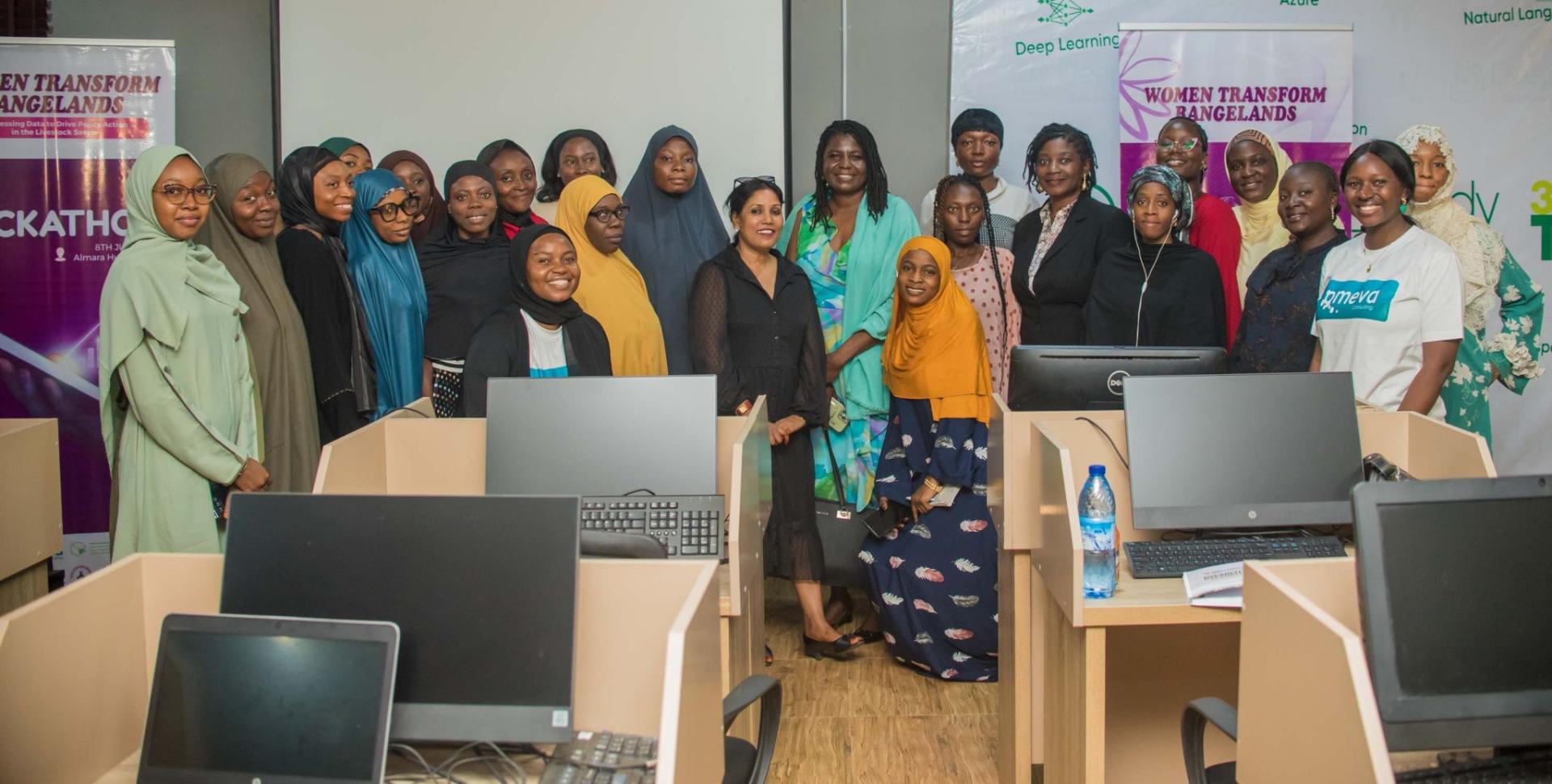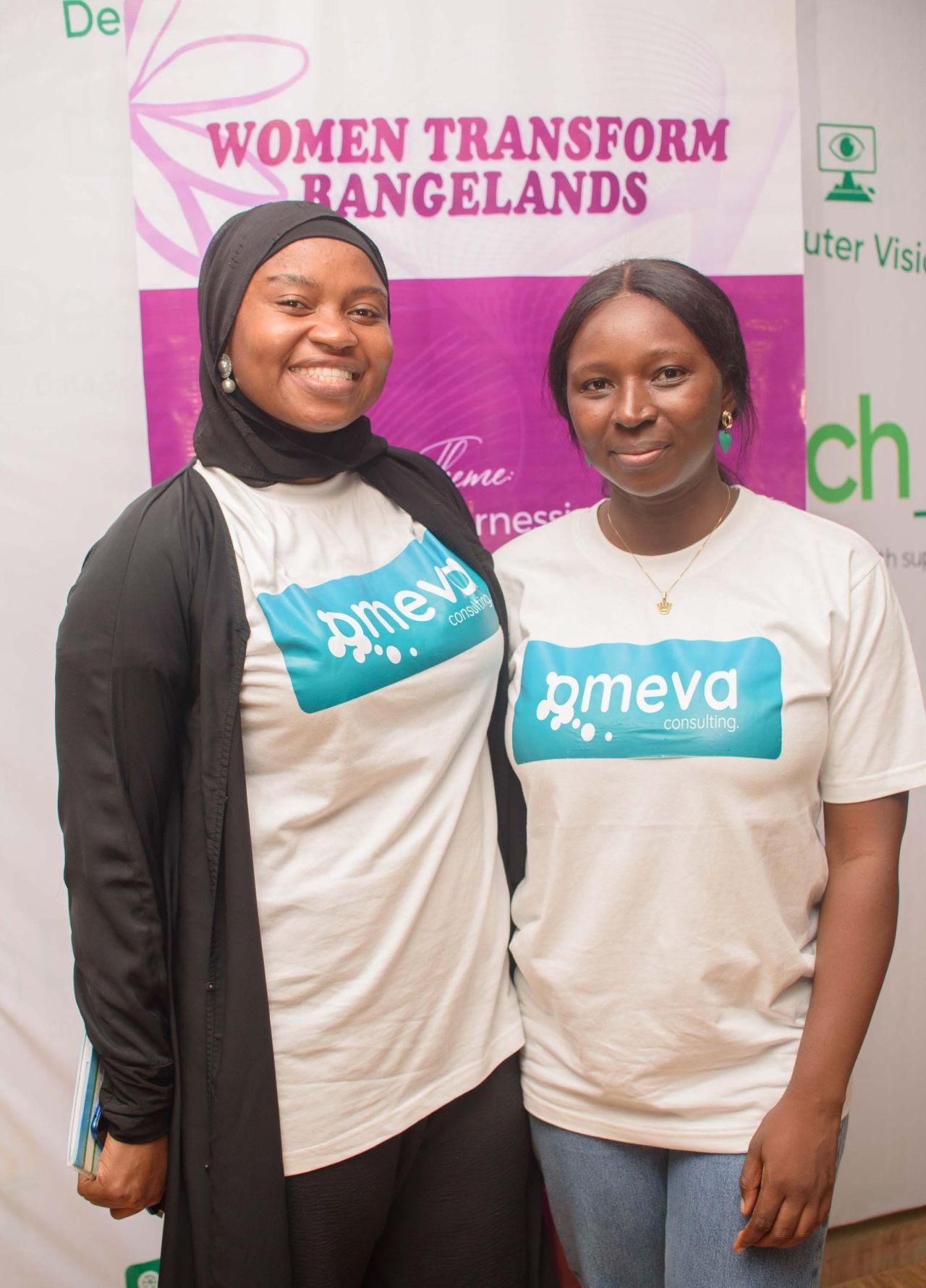Nigerian Women Use Rangeland Data to Propose Bold Policy Actions for the Livestock Sector

Photo: Omeva consulting
A groundbreaking competition in Nigeria has brought new attention to the potential of data and women in shaping Africa’s livestock future.
The Women Transform Rangelands Hackathon, which took place earlier this July in Kaduna, convened Nigerian women working in data science, agriculture, climate, technology, and communication to co-design solutions for livestock systems using real-world data: the Namibian Rangeland Dataset. Over the course of a week, participants worked in teams, received expert mentorship, and took part in targeted training sessions that linked data with policy pathways, equity, and resilience.
Supported by the Embassy of Spain in Nigeria and the Spanish Agency for International Development Cooperation (AECID), the hackathon carried a bold ambition: to show that Africa’s future can be built on Africa’s own data, by African people – including women, who remain underrepresented in both data science and policymaking. Leading this effort was Omeva Consulting, a Namibian-born company breaking barriers in data and communication to ensure African perspectives—including those of Nigerian women—are visible and part of the conversation.
Why Women, and Why Now?
The decision to hold a women-only hackathon was intentional. In many professional and academic spaces, women often hesitate to take on leadership roles or speak out, especially in male-dominated settings. By creating a space where women were the sole participants, the hackathon enabled them to lead, speak, and collaborate without hesitation. For many, this was the first time presenting a policy proposal or leading a team.
What the Hackathon Delivered

Participants dug into the dataset as well as the lived realities of Namibian ecosystems, land-use challenges, community needs, and national and local policies. They did an outstanding job crafting locally relevant, policy-aligned solutions. Their work underscored not only the urgent need for Pan-African cooperation in advancing climate-smart land governance but also the potential of bringing women into the conversation.
Team HEDA took first place with their Kunene Rotational Grazing Policy, a standout proposal blending ecological data, cultural understanding, and community partnerships. They adapted Namibia’s National Rangeland Strategy to the Kunene Region, introducing a rotational grazing model informed by biomass data, local land-use systems, and drought-resilient revegetation. Notably, their approach reimagined women’s roles, positioning them as grazing coordinators, data monitors, and land stewards—placing inclusion at the core of rangeland governance.
Second place went to Team CODE, whose proposal combined a Rangeland Dashboard with Community-Led Grazing Centres. Using data from 20 monitoring sites, they designed a practical system to guide sustainable grazing, incentivize good practices, and ensure shared leadership by including one male and one female from each household. Team HERDATA came third with a remote sensing–based model to detect land degradation early and enable targeted recovery. Their vision cantered on training and equipping women to lead in rangeland monitoring and decision-making, combining tech innovation with social inclusion.
Team Pitches
Watch solutions pitched by the participants, along with other programme footage at the Omeva Consulting Youtube Channel.
The Data Gap in Livestock: A Continental Challenge
Data-driven technologies have transformed crop farming. Sensors now monitor irrigation needs, and satellites and drones help plan harvests and reduce waste. Yet this revolution has barely reached the livestock sector—the backbone of livelihoods for millions across Africa.
Dr. Latifah Abdulkarim, LD4D Steering Committee member and key supporter of the hackathon, stressed that data must move beyond collection to become actionable insights that guide decisions and build trust across value chains. María Luisa de la Puerta Fernández, CEO of Omeva Consulting and LD4D member, warned that over a million cattle die annually in countries like Namibia and Botswana due to drought and feed shortages—even though biomass data shows sufficient feed exists, just not in the right places or at the right time.
The Women Transform Rangelands Hackathon aimed to close this gap by using real-life data—the Namibia Rangeland Dataset—to design solutions for sustainable land use and drought resilience. This dataset was selected because it is one of Africa’s most comprehensive resources, providing detailed information on vegetation cover, forage quality, and species composition. Such insights are essential for managing grazing systems and informing climate-resilient policies. Ironically, despite its value, the dataset has seen limited use within Namibia.
Beyond the Hackathon: A Call to Action
Africa’s livestock sector faces major data gaps, from forage availability and animal health to market access and disease surveillance. This hackathon clearly showed that there is immense, untapped potential in utilising quality data to shape practical and context-relevant policy actions for the livestock sector. Now is the time to act. We must advocate for stronger data systems in livestock production and their use in formulating policies that are responsive to the realities of local farmers and herders. Most importantly, we must bring women into the conversation, not just as beneficiaries, but as experts, analysts, and decision-makers. The future of livestock in Africa depends on it.
This guest article was contributed by Maria Luisa de la Puerta Fernandez, Omeva consulting. For more information about the programme, please contact Ms Naomi Bitrus David, Programme Coordinator, at naomi@omevaconsulting.com or +234 810 106 4704.